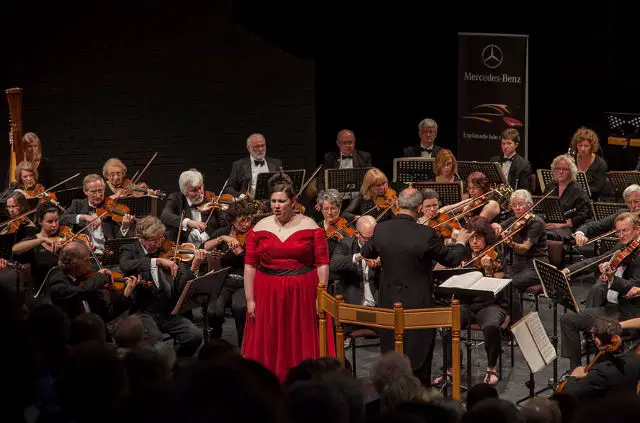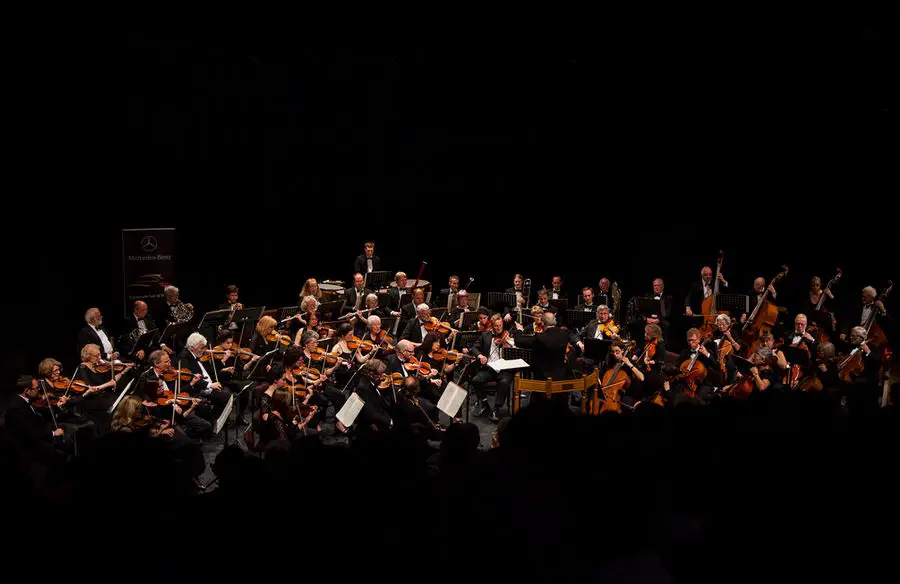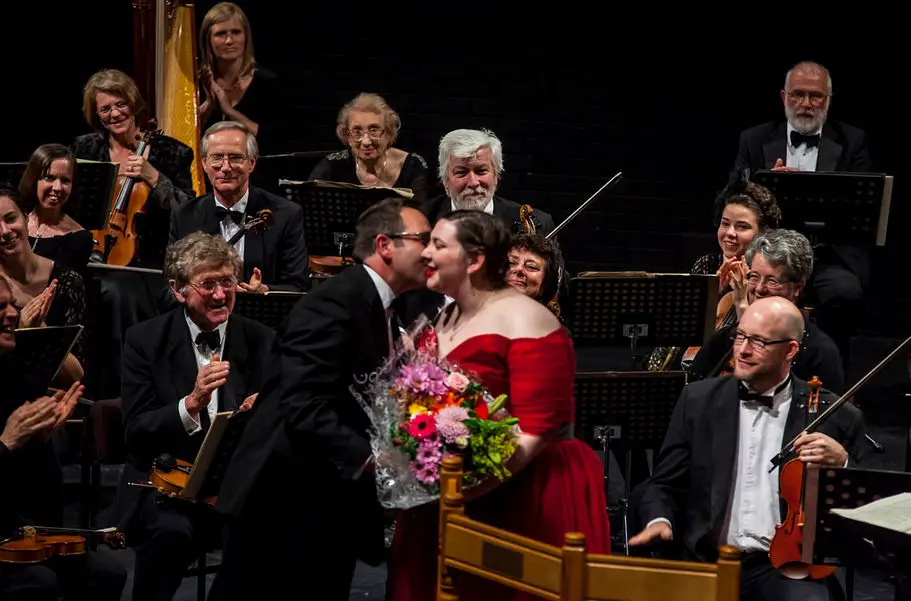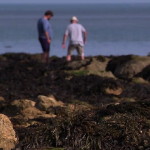Our thanks to Jonathan Dodd for his latest review of the Isle of Wight Symphony Orchestra. Ed
Last Saturday the always-excellent Isle of Wight Symphony Orchestra once again thrilled and amazed a captivated audience at the Medina Theatre in Ryde. At the risk of repeating myself, I have to say how lucky we are to have such an exceptional orchestra here on the Wight, composed almost entirely of Islanders, who work incredibly hard to produce such a body of wonderful music every year.
These people give a huge amount of their time and effort to make the Orchestra work so well, and it has always been wonderful to see just how far they can make their shoestring stretch.
My eyes and ears were opened
On Saturday the Orchestra’s charismatic conductor, Jonathan Butcher, was able to announce that they have received some donations, and the sponsorship of the Esplanade Mercedes Benz franchise. They’re also hoping to start a Friends Group.
The pieces chosen for Saturday’s concert all originated in Germany during the Nineteenth Century. I have to admit that I wasn’t sure I would enjoy it, but then I realised that I simply haven’t heard much German music from this period, so I put aside my prejudices and went, in the expectation of having my eyes and ears opened. And they were.
A Marmite composer if ever there was one
The first piece was by Wagner, a Marmite composer if ever there was one. I was expecting drama and thunder, but the Overture to Die Meistersinger proved to be a much lighter and more lyric piece. The opera it introduces is about a young singer, who wants to win a singing contest organised by the local Singer’s Guild (there really were such things). He also fancies the daughter of the head of the Guild.
In the story he fails to win because his song is too modern, but he perseveres and eventually wins the contest and the hand of his beloved. The Overture introduces all the main themes of the story and the emotional undercurrents, alternatively light and airy and serious and solemn, with the themes swirling around and combining with each other gloriously. I really liked it, and will listen to it again.
The incidental music was better than the play
The second piece was sheer escapism, with three pieces of ballet music written by Schubert as incidental music for a play called ‘Rosamunde, Princess of Cyprus.’ Sadly, the play wasn’t successful and was closed after two days. As far as I can tell, it’s never been put on since, but Schubert’s music survives it, and it is delightful, full of music and movement and good tunes.
I like the fact that this music was rediscovered by Arthur Sullivan, he of Gilbert and Sullivan. I was also saddened to discover that Schubert died at 31. Who knows what he might have gone on to write if he had lived longer?
Extraordinary and beautiful and quite unforgettable
After Schubert’s ballet music, we were treated to four songs by Gustav Mahler, called Songs of a Wayfarer.
These were, as expected, full of forests and nature and the sadness of a man who has lost his love and sets off on a journey to try to come to terms with it. Very much what you might expect, given Mahler’s reputation. But it turned out to be extraordinary and beautiful and quite unforgettable.
There was a large orchestra, but they played with great intensity and quietness. There was nothing grand about this music, it was intimate and described with great delicacy the sadness and despair of the young man as he wandered off.
A restrained power in her performance
For me the revelation was the singer Megan Quick, who I had not heard before. She commanded complete attention from the start, because of her concentration and the depth of the emotion and identification she brought to the simple verses she sang.
She has a lovely voice, and I felt that she could have sung very much louder, but there was a restrained power in her performance that underlined the grief and sadness and eventual quiet enigmatic resolution of the songs themselves. I would like to hear Megan Quick’s voice again too.
Great emotional depth and variation
After the interval the Orchestra played another Second Symphony, this one by Brahms. It is a mature work, since he delayed writing a second symphony for many years because he felt the long shadow of Beethoven.
It is a work of great emotional depth and variation, not telling a story, but rather illustrating the range of his emotions and feelings, and bringing in elements of the forest and fairy tales that were so popular at that time.
A positive and spectacular ending
The four movements, long and complex, were played with great concentration and power by the orchestra, who conveyed the happiness of the first movement, and the darkness of the second, with the third and fourth becoming lighter and more positive until the spectacular ending.
I enjoyed the symphony and was swept up by its power and complexity. It feels like a piece that needs many listenings to begin to gain a clear understanding. More music to listen to, and a fitting ending to an unexpectedly enjoyable concert.
The hairs are standing up on the back of my neck
The next concert, the last in this year’s season, will be an All-American July the Fourth Spectacular, even though it will be on Friday 3rd July, at 7:45pm. There will be some Bernstein, and two pieces by Gershwin, including the sublime Rhapsody in Blue. I can’t wait for that.
There will also be the Grand Canyon and a Rodeo, the Stars and Stripes March by Sousa, and the Theme from Jurassic Park, which is already making the hairs stand up on the back of my neck. This concert will be sold out, so hurry and book your tickets or it’ll be too late!
See you there!
Image: © With kind permission of Allan Marsh







